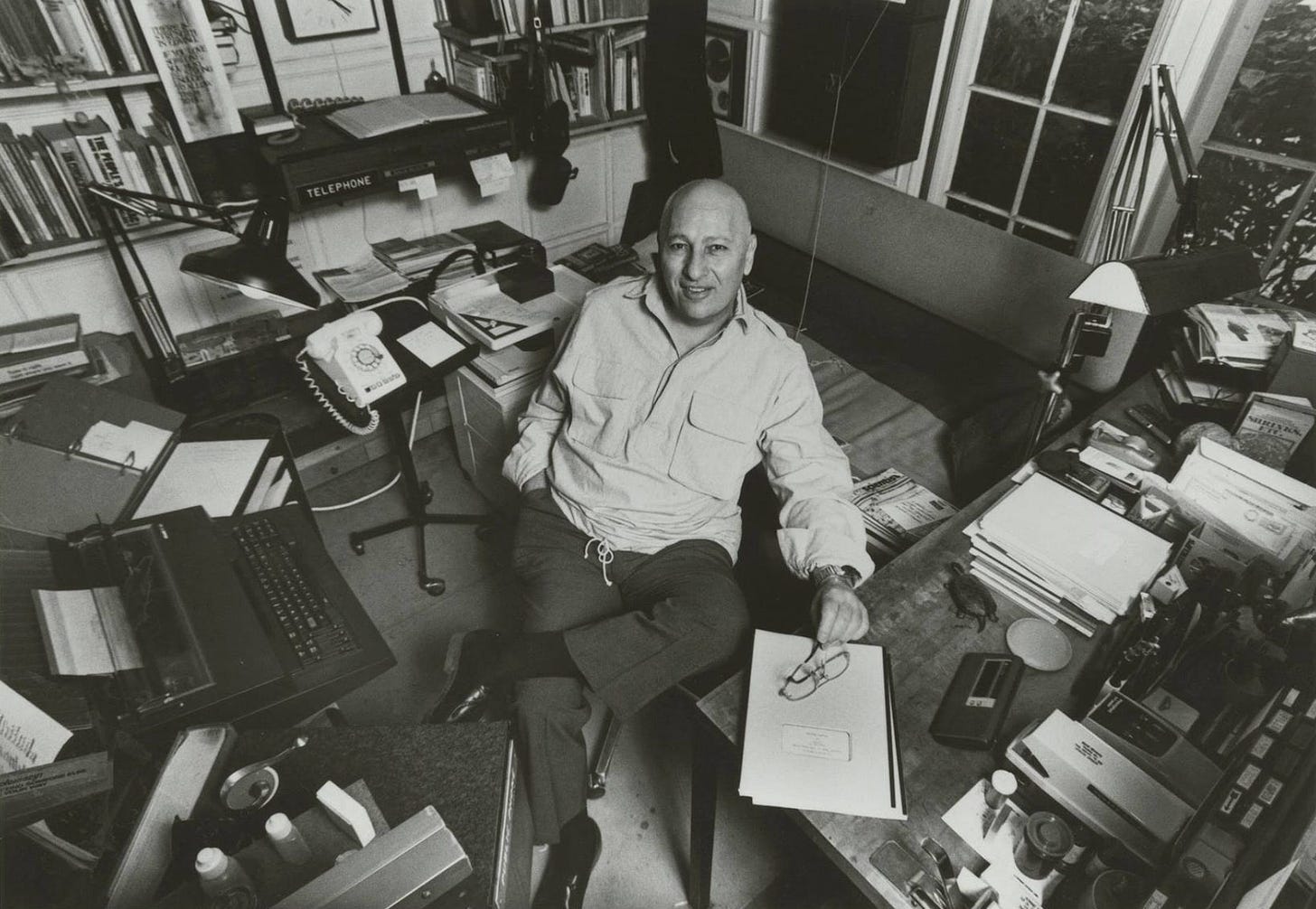The Tragedy of Howard Rodman Sr. (or: Why the Writers Guild Is on Strike)
Former WGAW president Howard A. Rodman explains how the early death of his screenwriter father presages what’s coming if studios and streamers get their way
The Writers Guild of America, of which I am a member, is currently on strike against the studios and streamers that have worked tirelessly to reduce the screenwriting profession to a gig economy and pillage our industry for short-term corporate gain (my article “The WGA Is On Strike — Here’s Why We’ll Win” breaks down everything that’s at stake). This past week, I read something from my friend Howard A. Rodman — screenwriter and former president of the WGAW — that I feel compelled to share with you. The heartbreaking reminiscence illustrates what the life of a screenwriter will become if corporations get their way with us. Writers’ rooms are essential to the way American television is produced, and we refuse to allow ourselves to be emotionally, physically, and economically exploited to make CEOs richer.
My father, Howard Rodman Sr., worked in one-hour episodic network drama in the 1960s, notably on “ROUTE 66” and “NAKED CITY”. There were no writers rooms then in one-hour drama. Only two people called “story editors,” and a pool of freelancers. That was it. The two of them — my father and Stirling Silliphant — wrote or rewrote every single episode.
You can only imagine — meaning you can’t imagine — the pressure they were under. In those days, a season of television was 32–39 weeks. For comparison: picture having to write and film four seasons of “SUCCESSION” in a span of ten months. (And then, after the shortest of breaks, doing it all again.)
They wrote pages in Los Angeles that were put on airplanes in hopes that they could be shot the next morning in New York. They used every prescription drug available to keep up the pace.
During the course of this, my father worked through three minor heart attacks. He didn’t tell his doctor because his doctor might tell him to stop working. The show had to go on.
To be fair, the creativity that emerged from that crunch — my father’s work, Stirling’s work, and the work of wildly talented freelancers — was astonishing. Episodes of those series were nominated for five WGA awards and won three of them. But the relentless pace took its toll.
When the run ended in 1964 — 64 episodes of “ROUTE 66”, 26 episodes of “NAKED CITY”— my father had what we publicly referred to as “pneumonia.” A more accurate description would be a complete physical and mental collapse. It lasted the better part of two years.
He ultimately found his way back to writing, but the damage had been done. As an express result of the working conditions of one-hour episodic drama in that era, he died of cardiac insufficiency at age 65.
Had there been other shoulders to help bear the load — had there been a room of writers, rather than two lone and overburdened men — it’s not unreasonable to think he might have lived into his 70s. Or 80s. Or even — (His dear friend and colleague Walter Bernstein made it to 101.)
The companies want as much work as possible done by as few people as possible at the lowest wages possible. They can’t help it. It’s what they are. They are as conscious of their workers’ health as the owners of coal mines.
If they are not restrained by the power of [the Writers Guild of America], they will mandate a future for writers that all too clearly resembles my father’s past.
He has three grandchildren, none of whom he lived long enough to see. The fight to preserve the writers' room is many things. But please remember: it is also a fight for working conditions that extend and enrich human lives.
This story was shared in its entirety with Howard’s permission.
You can find Howard on Twitter. Then you should read his latest novel, THE GREAT EASTERN, which is out now.
You can read more about the WGA strike here:
The WGA Is on Strike — Here’s Why We’ll Win
Why AI Is the Most Important Issue in the Writers' Strike
The Secret Weapon Helping the Writers Guild Win This Strike
A Matter of Survival: How the WGA Is Trying to Save Feature Screenwriters
The WGA Strike in Photographs: A 'People's History' by J.W. Hendricks
If these articles added anything to your life, please consider buying me a coffee so I can keep this newsletter free for everyone.
PSALMS FOR THE END OF THE WORLD is out now from Headline Books, Hachette Australia, and more. You can order it here no matter where you are in the world:





